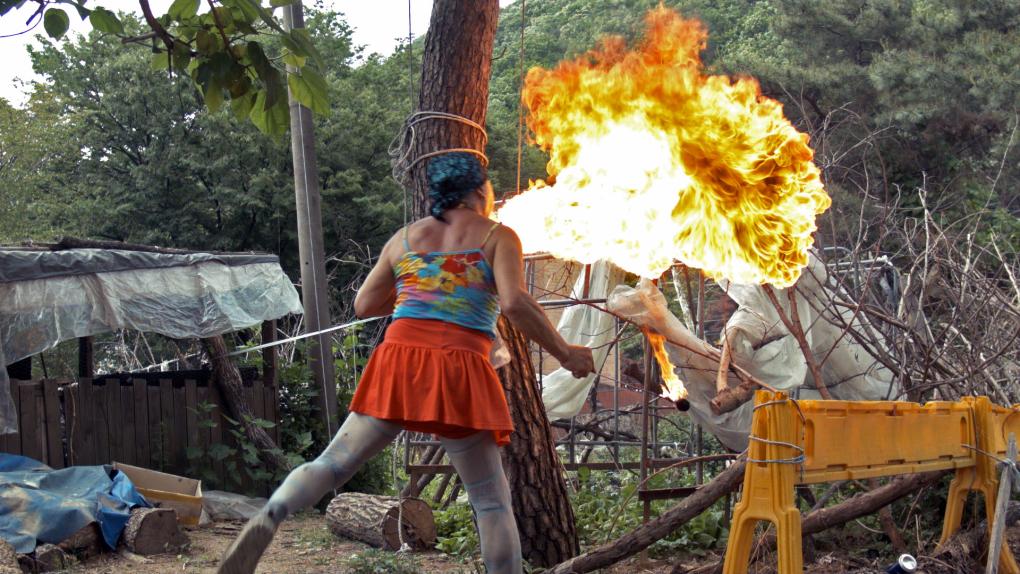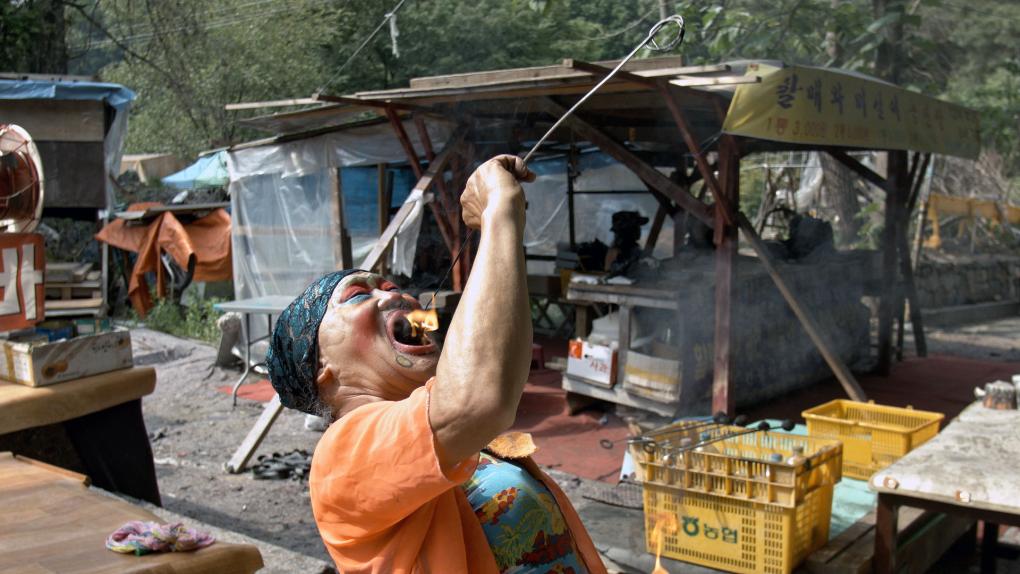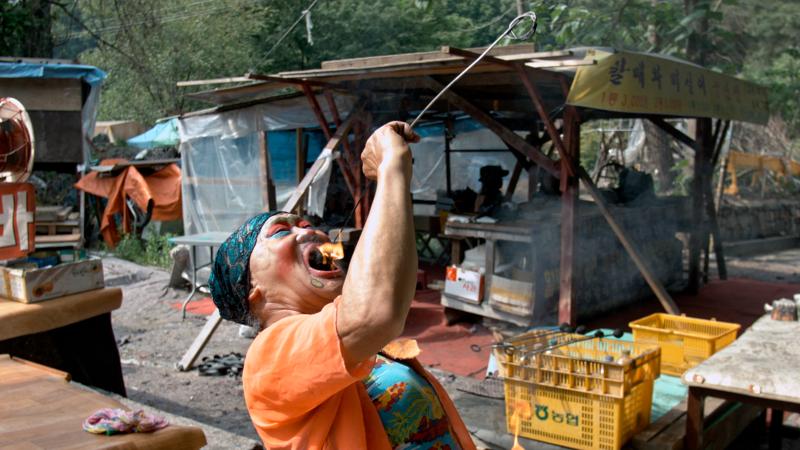
Broken glass, sticks and leftover furniture litter the floor. The paint is peeling and scraps of paper scatter in the breeze from the grated, broken windows. There is no sign of life anywhere in the abandoned building, except for the birds outside chirping merrily, ignorant of the cruelty that was perpetrated here.
We are at a former STD (Sexually Transmitted Diseases) facility in South Korea. In the 1970s, Korean sex workers servicing American military bases were forcibly isolated and medicated here to prevent the spread of sexually transmitted diseases among American soldiers. If, at regular checkups, the women couldn’t prove they were disease free, they were placed in such centres against their will.
In her 11-minute-long video installation 'Strange Meetings,' artist and filmmaker Jane Jin Kaisen, in videos and documents, chronicles the facility’s former function and its current state. Kaisen’s footage from the abandoned centre is to show "the impossibility of drawing clear boundaries" and isolating the diseases.
"Over time, the structure has become a testament to the tangled relationship between South Korea and the US, showing how a military presence in an area can never be isolated behind barbed wire but has a huge human cost to the surrounding society," she says.

Unequal Power Relations
Kaisen has been working on the subject since 2008, when she was researching her film 'The Woman, the Orphan and the Tiger' (2010), about the American military presence in South Korea and military prostitution. Since then, she has remained in regular contact with an NGO that works for the rights of these sex workers.
In a lawsuit brought by 57 women against the South Korean government last year, the court ruled that they had been illegally treated. The women later appealed to get an official apology and greater compensation.
If you’ve never heard of the story before, you’re not the only one. The case has received scant mention in the international media.
"The South Korean and American governments have had no interest in acknowledging the case, because it might hurt their military relations and entail compensation for the plaintiffs," Kaisen says.
"It’s a very dark story about how a part of the population have been deprived of their freedom against their will as tokens in geopolitical negotiations. They are already one of the most marginalised groups in society, which is another reason why so little attention has been paid to the story until now," she says.
Systemic Problem
The United States has operated military bases in South Korea since the Korean War. About 28,000 American soldiers are stationed there today. It’s essential to bring this part of history to light, Kaisen says. It’s just as relevant today as it was 40-50 years ago.
"Military prostitution and sexual violence against women near military bases is a widespread problem in many places in the world. The problem is systemic and cannot be isolated to a particular time or place," she says.
"The women who worked around the bases in South Korea are elderly now. Most live in poverty and have permanent physical injuries from servicing the American military. That’s also why it’s important to focus on what happened, so that they can be compensated for their imprisonment and the violation of their human rights and get the medical help that many of them need.
"Moreover, it is important to acknowledge their situation, because there is still a tendency to see their situation as self-inflicted, rather than viewing military prostitution as a structural problem."
Clashing Realities
The film includes an odd juxtaposition between the abandoned building and a performance taking place right behind it, with gaudily dressed, face-painted dancers and musicians.
Such performances were held every weekend during the summer when Kaisen was filming in the area. The performers told her that the local authorities had asked them to move away from the road and closer to the building, so that the elderly dancers wouldn’t scare off tourists visiting a nearby mountain.
"That was a weird clash of realities and times," Kaisen says. "It awakened a lot of affect of the same kind that’s inherent in the building and that, again, involves a lack of clear boundaries and insufficient discussion and closure regarding the violence that took place. So, even though the performance could be seen as a disavowal of history, by its very nature it equally feels like a kind of exorcism, where the violence that happened may not be healed but is, at least, negotiated"


